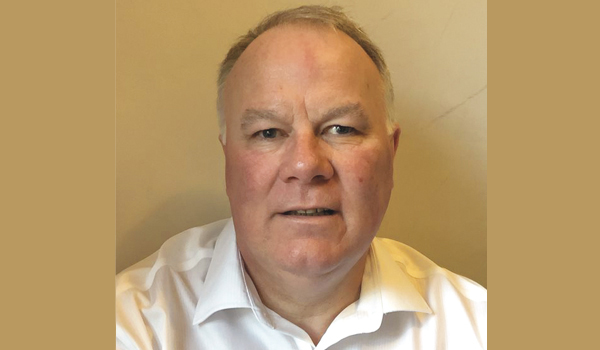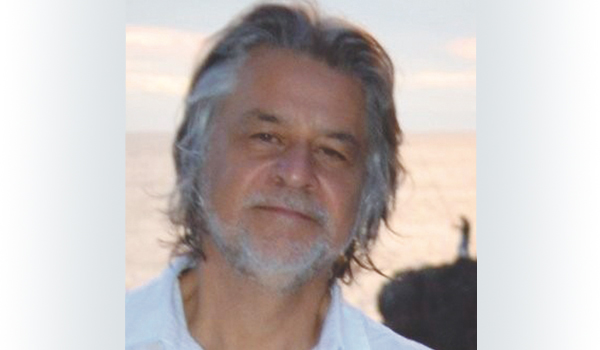‘My son inspires me to improve autistic people’s experience with police’
Superintendent Dion Brown has co-written a guide designed to help autistic people if they are stopped by a police officer. In this blog, written during World Autism Month, the Metropolitan Police Service (MPS) officer, who has five children, two of whom are autistic – Hayden, 14, and Darcy, 11 – explains how his son inspires his work, and why he hopes both autistic people and police officers will read the guide.
My 14-year-old son, Hayden, is absolutely obsessed with rollercoasters. The faster and scarier a rollercoaster is, the more Hayden enjoys it.
He likes riding rollercoasters, talking about rollercoasters and planning which rollercoaster he will take me or his mum on next.
Hayden is autistic and like many autistic people, he becomes fixated on some activities.
However activities other people find ‘easy’, Hayden can find incredibly stressful and confusing.
Most people who see Hayden laughing on a speeding rollercoaster probably wouldn’t imagine that earlier he had lashed out or had a meltdown as a result of his excitement.
Hayden finds making decisions difficult. His desire to ride as many rollercoasters as possible and the pressure to decide which one to start with can negatively impact his behaviour.
If you are autistic, you might relate to Hayden’s characteristics. And if you saw him, perhaps you would notice little things that signify he is autistic. Things which people who are not autistic would not see.
Like the fact that he becomes nervous if someone he doesn’t know speaks to him. Or if someone touches him, even accidentally, it causes him distress. Or if it’s very noisy and busy around him, he becomes stressed and wants to remove himself from the situation as quickly as possible.
A police officer who doesn’t know you are autistic or doesn’t know much about autism might mistake these behaviours as being suspicious.
So the police officer might want to stop you and ask you questions. They may even want to search you, to check if there is evidence of a crime.
Being stopped and searched by a police officer would be an incredibly stressful experience for my son.
The situation could quickly spiral into a traumatic experience if the police officer did not know Hayden is autistic, or if the police officer did not know the best way to interact with Hayden.
As Hayden has grown up, I have often worried what would happen if he was stopped by a police officer.
Would Hayden understand what was happening? Would he become stressed and angry? Would he try to run away?
Maybe he would even confess to crimes he hadn’t committed, to try and make the police officer leave him alone.
When Hayden was 12 years old, I talked to him about what to do if he is approached by a police officer.
I explained that the first thing he should do is show the police officer his Autism Alert Card. This is a card you carry on you, and which helps you quickly communicate that you are autistic. You can apply for one by emailing autism@met.police.uk.
I then explained to Hayden everything I felt he needed to know, including his legal rights and how to help the police officer so the situation would conclude quickly.
As I talked with Hayden, I realised the information I was giving him was advice that every autistic person should know.
I also felt that every police officer should know how to conduct a stop and search in a way that is respectful of the needs of autistic people.
So I worked with barrister Sean Kennedy to write ‘Stop and Search Guidance for Autistic People and Police Officers’.
Sean is autistic and has legally represented many autistic people. He works for the charity Anna Kennedy Online, based in London.
Creating the Stop and Search Guidance for Autistic People and Police Officers is one way we are together trying to improve the experiences of autistic people.
The guide explains in simple terms what stop and search is and what to do if you are stopped by a police officer.
I hope that you will read the guide if you are autistic.
If you have a loved one who is autistic or your work involves providing support to autistic people, I also encourage you to read and discuss the guidance.
Meanwhile, my colleagues and I will continue to raise awareness to police officers of how they can build strong and trusting relationships with the autistic community simply by understanding and respecting their individuality.
There are more than 700,000 autistic people in the UK. Supt Brown developed the stop and search guide with Anna Kennedy Online in consultation with people from the autistic community, including members of the National Police Autism Association. The guide has been shared with every police force in the UK and aims to enhance trust and cooperation between autistic people and the police, and ensure that autistic people are treated fairly and lawfully.
Supt Brown grew up in Wales and moved to London to join the MPS Police 20 years ago. He started his career as a police constable in Notting Hill, going on to work in detective roles in Islington and Newham and as a detective chief inspector in Specialist Crime. He has now recently returned to Newham as a superintendent. Driven by his passion for safeguarding and his love of his children, Supt Brown has sought to improve the experience of autistic people inside and outside of the MPS, including helping the Met Police Autism Support Group, which celebrates and supports hundreds of talented autistic officers and staff; launching the award-winning Autism Alert Cards with City of London Police and British Transport Police and teaching officers across the Met about autism. He says good communication is crucial during a stop and search and autism, which is a complex neurological condition, requires a more bespoke approach with police officers making reasonable adjustments for the individual. The new guidance aims to help by explaining stop and search to autistic people in simple terms, and advising police officers how to carry out their duty in a way that reduces stress for autistic people.
“Ensuring that autistic people are treated fairly and lawfully is at the heart of this guidance,” says Supt Brown.






